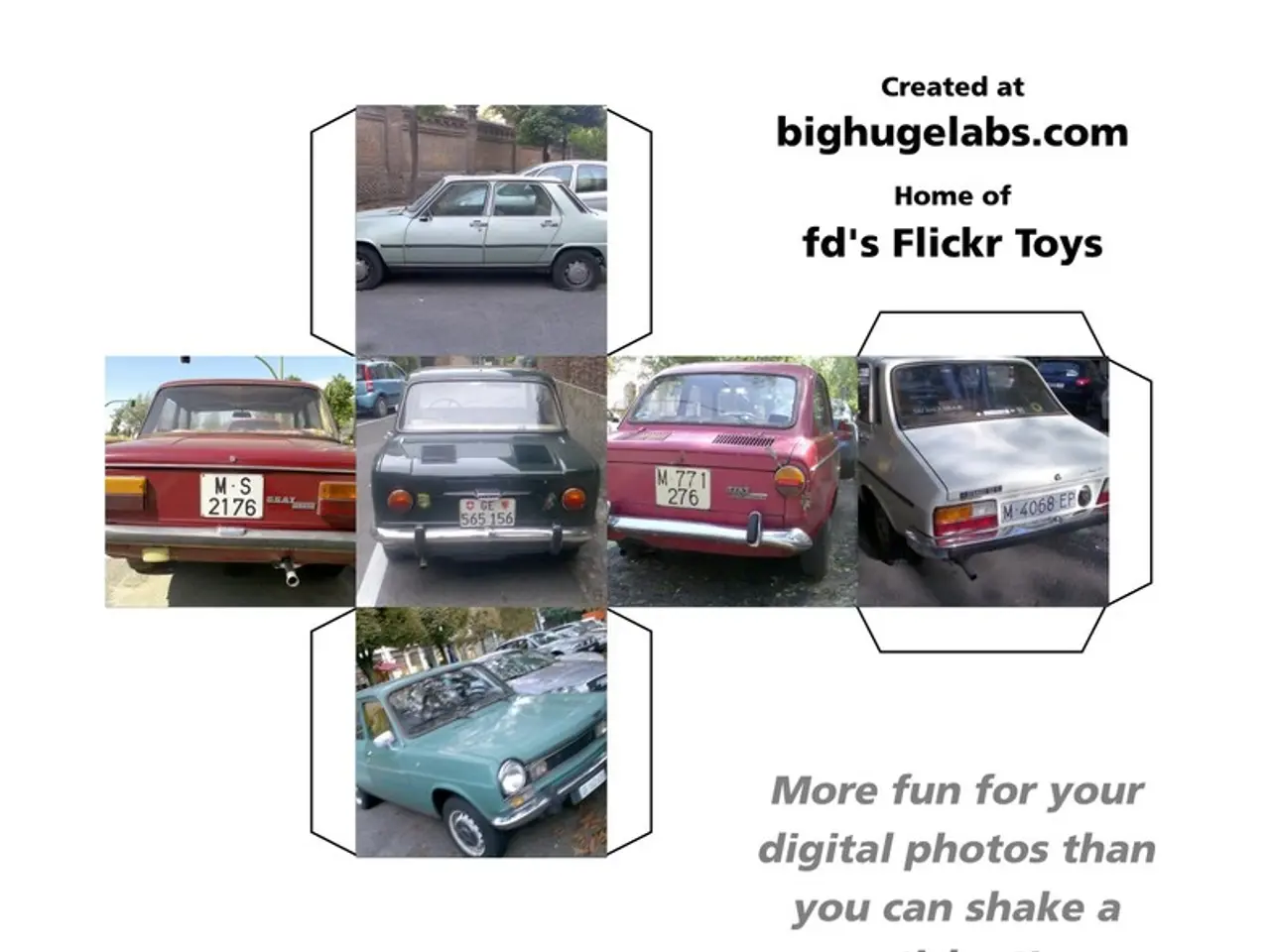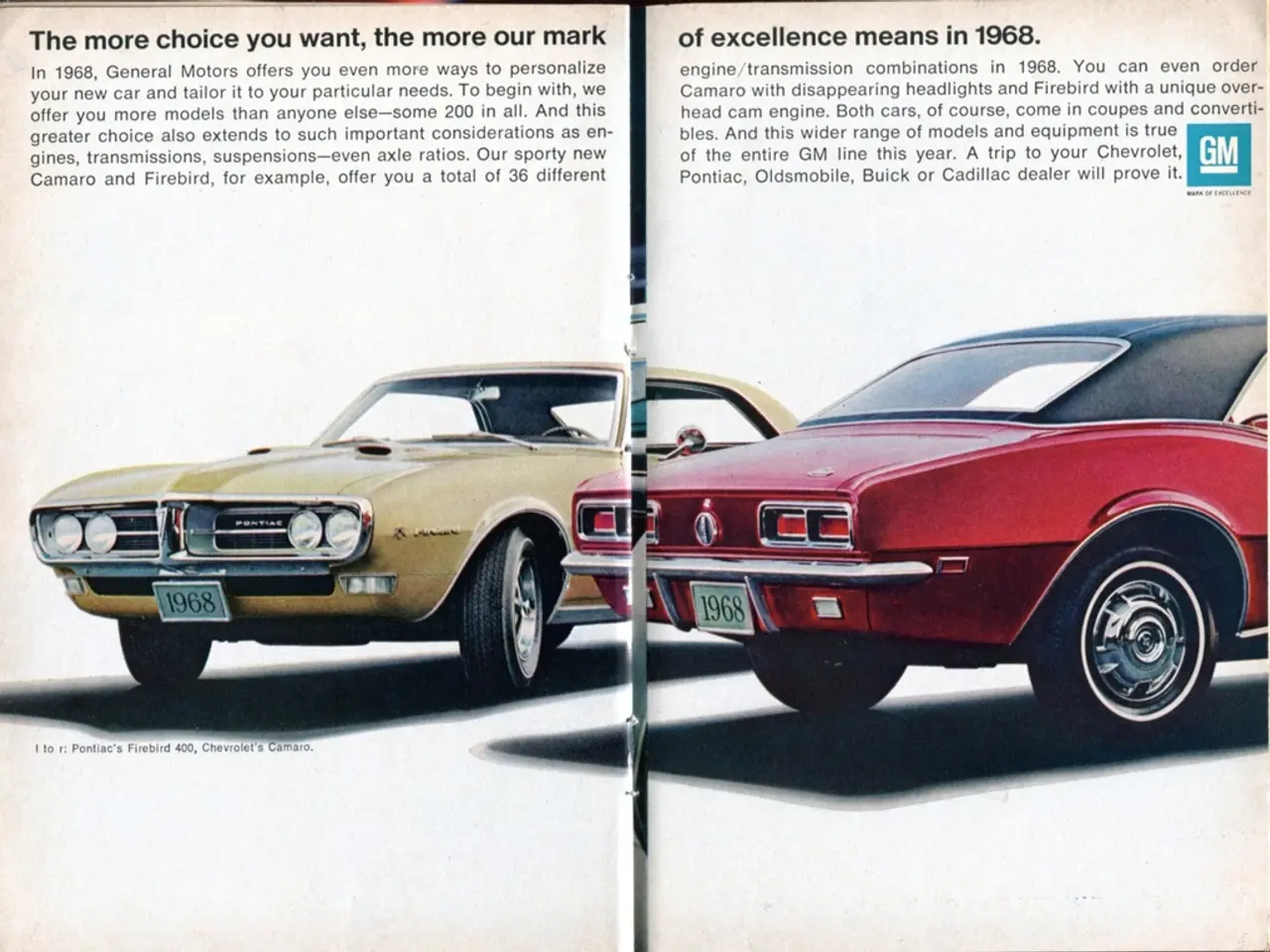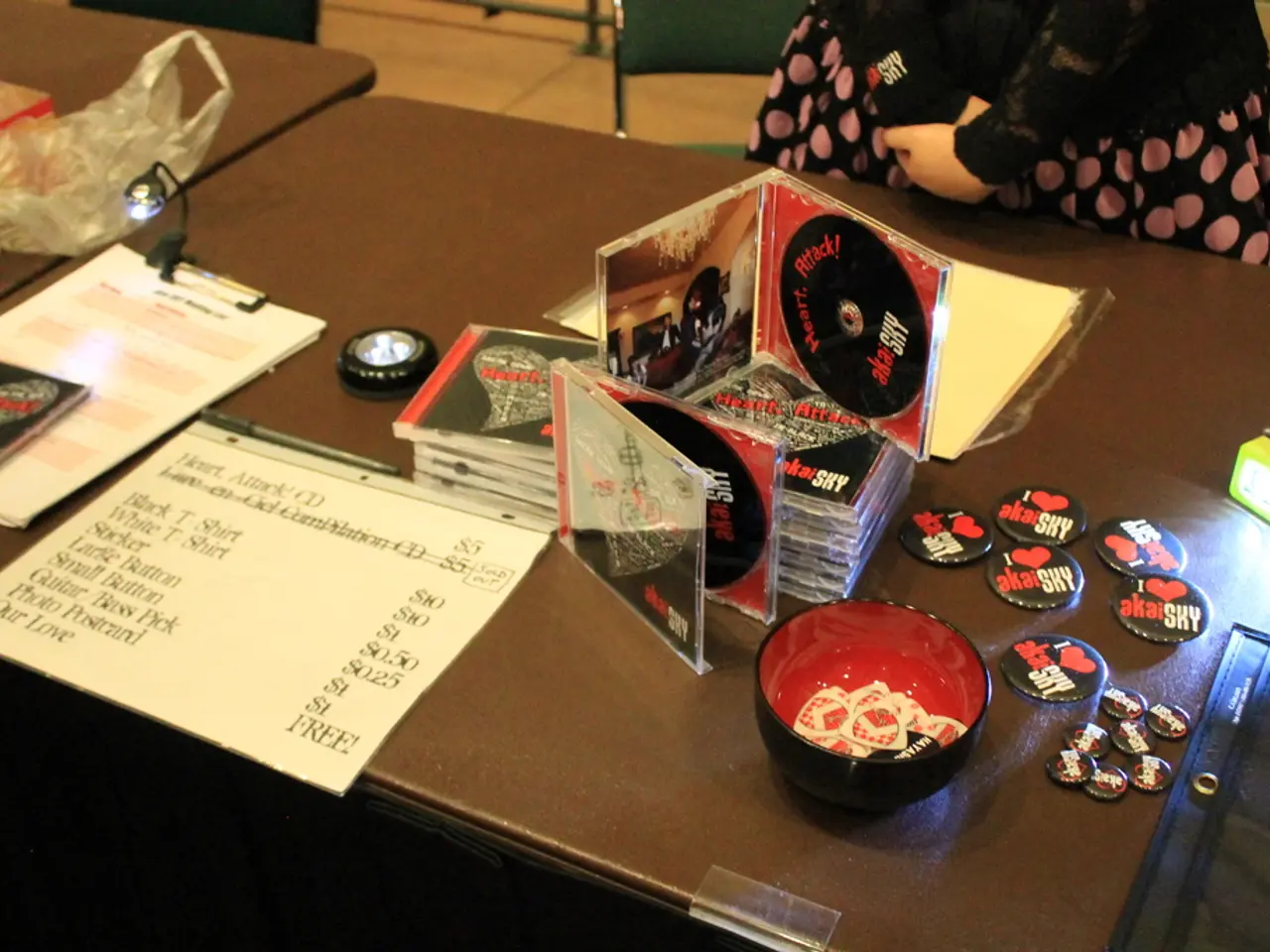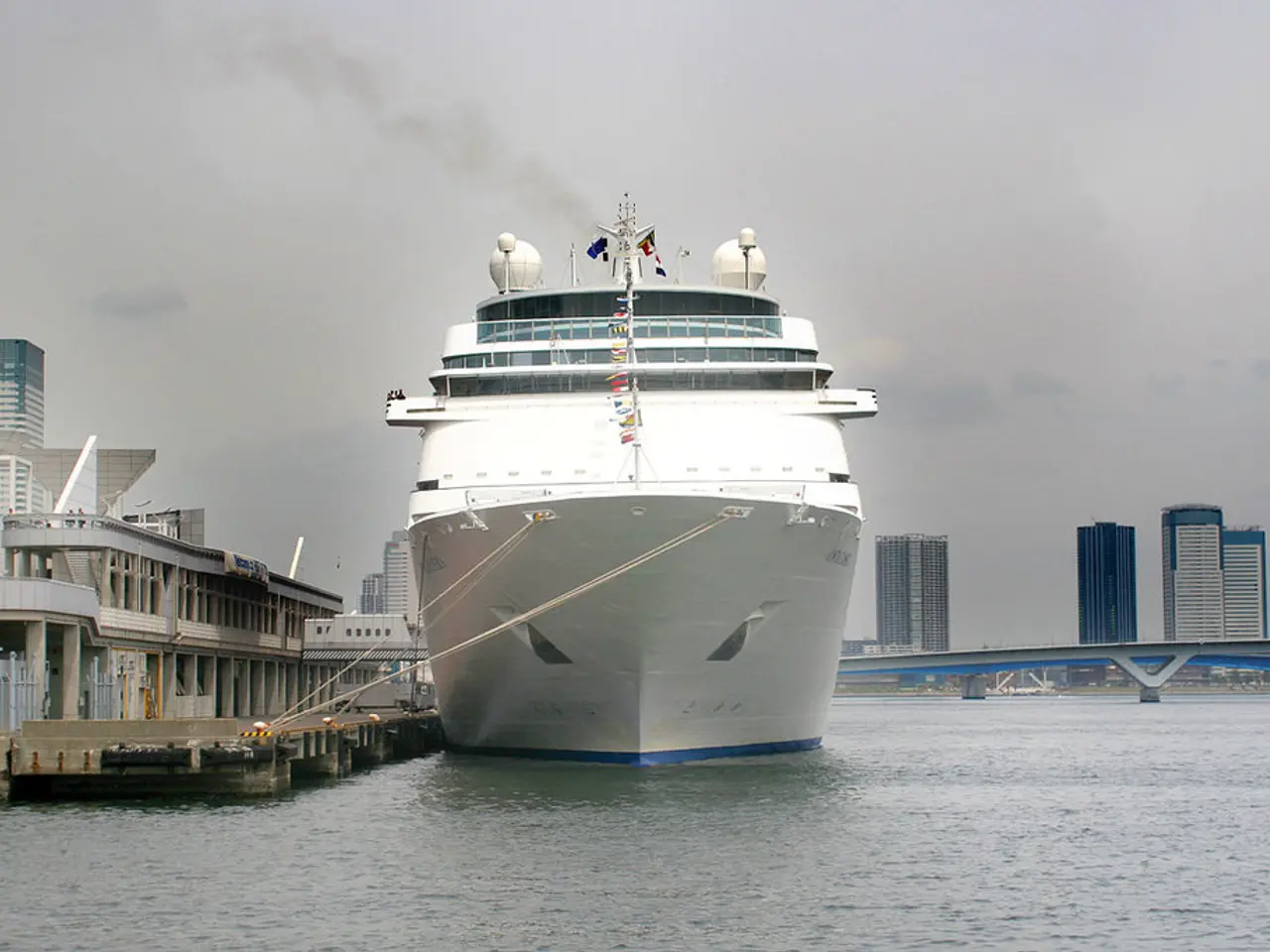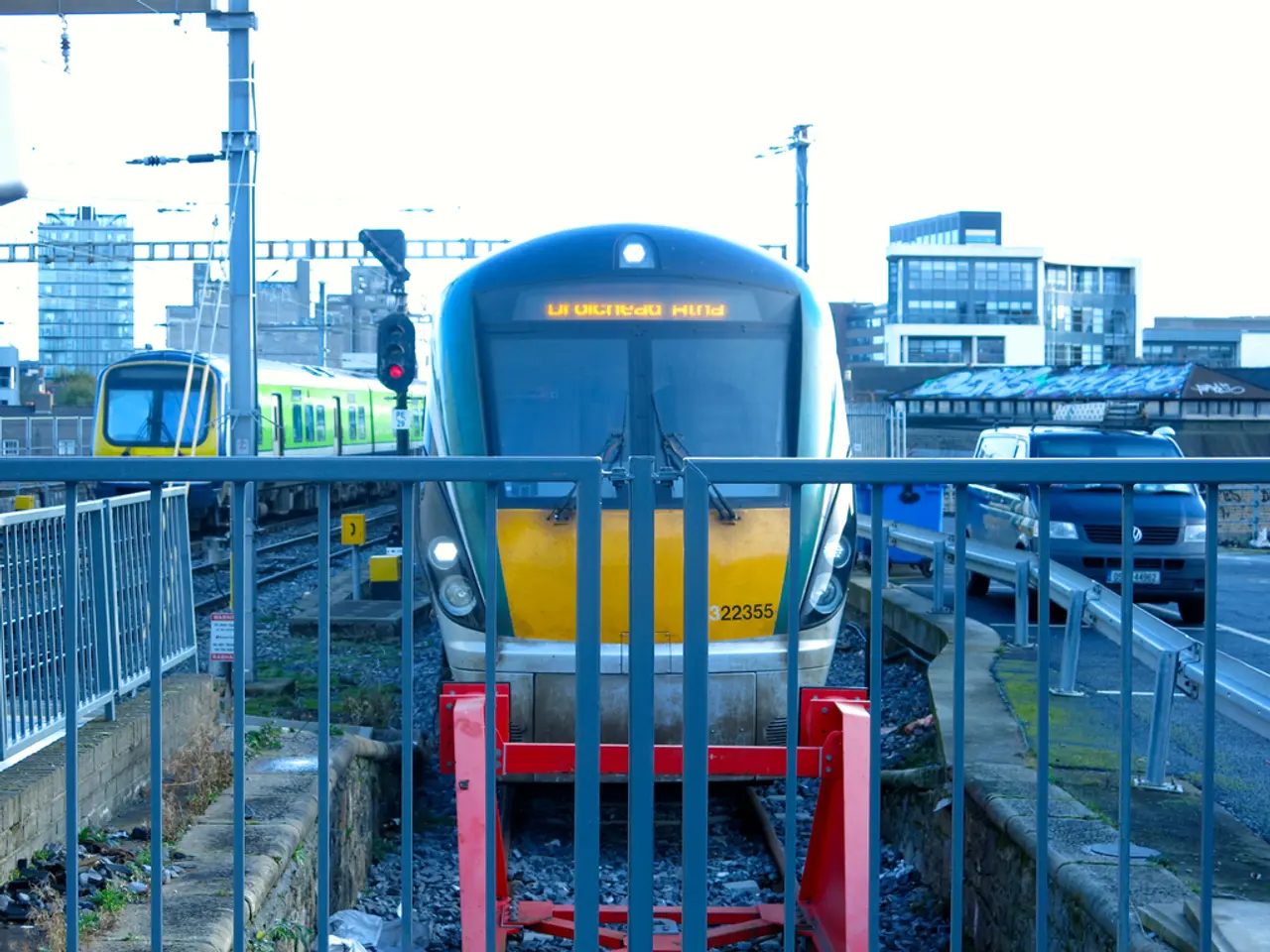Autonomous Investigation Halts Tesla Sales in California
California officials have accused Tesla of misleading consumers by using names like Autopilot and Full Self-Driving, which suggest fully autonomous performance that Tesla's systems do not deliver [1][2][3][4]. This allegation, if proven, could result in Tesla facing a 30-day suspension of its dealer and manufacturer licenses in California [1][2][3].
The California Department of Motor Vehicles (DMV) has accused Tesla of violating a California Vehicle Code provision by falsely implying full autonomy in the marketing of its Autopilot and Full-Self-Driving (FSD) technology [4]. The DMV presented numerous examples from Tesla's own website, emails, social media, and user complaints to support their claim [5].
If the suspension is enforced, Tesla would be temporarily barred from selling and manufacturing vehicles in California, a market that accounts for around 30% of Tesla’s U.S. sales [4]. This could severely disrupt Tesla's near-term sales volume and production plans. Moreover, the ruling may require Tesla to compensate owners for the gap between promised and actual semi-autonomous performance and force changes in Tesla’s marketing of Autopilot and FSD technology in the state [2].
The recent hearing signals broader scrutiny of Tesla’s driver-assistance technologies, with potential impacts beyond California. Tesla’s future business model, which increasingly relies on revenue from software and advanced autonomous-driving features—including robotaxi services—is at stake [2]. Analysts have projected these technologies and associated AI and robotics to be key profit drivers for Tesla moving forward [2].
Expert testimony in the case, including from legal and automation standards authorities, indicates a rigorous challenge to Tesla’s claims and advertising approach [3]. Tesla’s defense, arguing that driver warnings justify its marketing, has not convinced regulators or courts thus far [3]. The outcome could set a precedent for regulatory oversight on how autonomous driving features are marketed in the U.S.
The hearing is presided over by Judge Juliet Cox, an administrative law judge with the California Office of Administrative Hearings [6]. Judge Cox is expected to issue a proposed decision within 30 to 60 days after the hearing, which concluded this week [7]. If Tesla receives an unfavorable decision, it can file a petition challenging the DMV’s final decision in Superior Court on grounds such as abuse of discretion, decision not supported by findings, or insufficient evidence [8].
It's important to note that the average consumer interprets "self-driving" to mean full autonomy, making Tesla's use of the term "self-driving" false and deceptive under the law, according to the California DMV [9]. The National Highway Traffic Safety Administration found at least 467 crashes where Autopilot was believed to be employed, including 13 fatal accidents, during a three-year investigation reviewing 956 crashes involving Tesla Autopilot (Jan. 2018-Aug. 2023) [10].
Tesla CEO Elon Musk's contentious relationship with regulators has triggered accountability concerns with regulators and customers [11]. The hearings in California could deal another blow to Tesla's future business model, which relies heavily on profits from Autopilot, FSD, AI, and robotics [12].
If Tesla is found guilty, it could face a significant impact on its financial, operational, and technological trajectory in the medium term [2][3]. However, the administrative judge's decision would not be the last word on Tesla’s autonomous driving future. The California DMV director can rule to adopt Cox's decision, modify it, or reject it after receiving the proposed decision [13].
Sources: 1. Tesla could face California sales ban over self-driving claims 2. Tesla's Autopilot Under Scrutiny as California Regulators Push for Changes 3. Tesla's Autopilot Under Scrutiny as California Regulators Push for Changes 4. California DMV Accuses Tesla of Misleading Consumers on Autopilot and Full Self-Driving 5. California DMV Accuses Tesla of Misleading Consumers on Autopilot and Full Self-Driving 6. California DMV Accuses Tesla of Misleading Consumers on Autopilot and Full Self-Driving 7. California DMV Accuses Tesla of Misleading Consumers on Autopilot and Full Self-Driving 8. Tesla's Autopilot Under Scrutiny as California Regulators Push for Changes 9. Tesla's Autopilot Under Scrutiny as California Regulators Push for Changes 10. Tesla's Autopilot Under Scrutiny as California Regulators Push for Changes 11. Tesla's Autopilot Under Scrutiny as California Regulators Push for Changes 12. Tesla's Autopilot Under Scrutiny as California Regulators Push for Changes 13. Tesla's Autopilot Under Scrutiny as California Regulators Push for Changes
- The California Department of Motor Vehicles (DMV) has accused Tesla of violating a California Vehicle Code provision by falsely implying full autonomy in the marketing of its Autopilot and Full-Self-Driving (FSD) technology, using words like 'vehicle technology' and 'autonomous driving'.
- Tesla's future business model, which increasingly relies on revenue from software and advanced autonomous-driving features—including robotaxi services—is at stake, involving the 'industry', 'finance', 'transportation', 'automotive', and 'business' sectors.
- Analysts have projected these technologies and associated AI and robotics to be key profit drivers for Tesla moving forward, suggesting an essential role in the company's 'technology'.
- If Tesla receives an unfavorable decision, it can file a petition challenging the DMV’s final decision in Superior Court, highlighting the complex legal hurdles in the 'business' and 'industry' realm.
